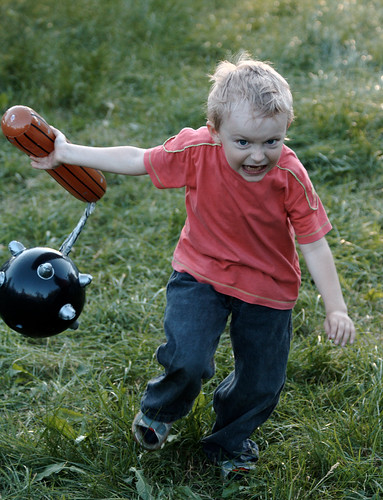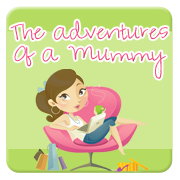Wednesday, February 8, 2012
Learning Journey to Kg Glam
Friday, February 3, 2012
Parenting
http://www.positive-parents.org/2011/07/positive-parenting-in-action-aggressive.html
Positive Parenting In Action: Aggressive Behavior
First, it is important to understand that children who are aggressive are children who are scared, hurt, or feeling disconnected. Aggression is a cover-up of those more vulnerable feelings. Hand in Hand Parenting has written a wonderful article about this, which you can read here. This article notes:
The child who lashes out feels sad, frightened, or alone. She doesn't look frightened when she is about to bite, push, or hit. But her fears are at the heart of the problem. Fear robs a child of her ability to feel that she cares about others. Children get these feelings of isolation, no matter how loving and close we parents are. Don't blame, shame, or punish. These actions further frighten children, and further isolate them. They add to the load of hurt that makes children aggressive.
Dr. Laura Markham of AhaParenting offers this advice to a mom whose toddler is hitting her.
1. Set a limit (“We don’t hit”)
2. Offer empathy and acceptance of her feelings (“You are disappointed”)
3. Let her discharge her feelings by crying with your comfort.
4. Help her explore ways to shift her mood.
Let's get right into the scenarios.
Scenario #1
Your 3 year old has become aggressive toward her baby sister. She tries to hit her and push her over. You're concerned she's really going to hurt the baby.
Reason behind the behavior: Jealousy, probably. It's hard sharing mom and dad, especially when you used to have them all to yourself.
:ACTION: Follow the above list.
1. Set a limit. (“We don’t hit”)
2. Offer empathy and acceptance of her feelings. (“You are disappointed”)
3. Let her discharge her feelings by crying with your comfort.
4. Help her explore ways to shift her mood.
To expand on this a bit, you will take her safely away from the baby, get down eye-level with her, and set the limit - we don't hit (or push, or bite). It is important to acknowledge her feelings of anger or frustration or jealousy that caused her to hit. "You're feeling upset at the baby. Are you upset that I was holding her?" or "She grabbed your toy and that made you angry." Your child is hurting, even though she may look like she isn't. She needs to know it's safe to show her feelings. Tell her it's okay to be angry, and its okay to cry, and that you will keep everyone safe. If she melts down in your arms, she is healing. Let her get her emotions out while you provide comfort. After the incident is over and everyone is calm, address the reason behind the behavior.
1. Spend special one-on-one time with each child. Let her pick the activity. Connect with her. She needs to know that she is still just as loved as before.
2. Teach appropriate ways to handle anger. You can do this by talking it through, modeling it, role-playing, puppet shows, books, or stories.
3. Don't punish her for hitting. At 3, remember she didn't have the cognitive resources to stop and think about her actions logically.
"Punishment is not actually an enforcement of the limits. That's our rationalization for punishing, because we're frustrated that he isn't respecting our limits. Punishment is actually retaliation, and retaliation always sabotages your relationship with your child (or anyone else.)" - Dr. Laura Markham.Teaching her how to handle her anger will serve her much better than punishing her for handling it wrong.
4. Read books to her about the baby and about being a big sister. For a list of such books, click here.
Scenario #2
Your 19-month-old is a biter. He has just bitten another child at a play date.
Behind the behavior: It depends on what was happening at the play date. It could be frustration, anger, hurt feelings, or fear.
:ACTION: Remember the steps above. Remove your little biter to safety, make sure the child bitten is okay, and then set or reinforce your limit. "We don't bite." Validate his feelings, empathize with his upset. "You got mad because he took your truck. I see you're mad, but we don't bite. Biting hurts." Let your child express his emotion safely, and problem-solve later. The reason I suggest not talking about appropriate alternatives during the time it happens is because children do not take information in well when they are in "fight or flight" mode or are upset. They are much more likely to learn and retain information when they are calm. For more on toddler biting, read this article at TEACH Through Love.
Don't bite him to show him how it feels. You'd be surprised at how many parents would advise you to do this. Remember, you are the model for appropriate behavior!
Scenario #3
You got a call from school. Your 8-year-old son punched another student for calling him a bad name.
Reason behind the behavior: Anger, obviously. Lack of ability to control his actions.
:ACTION: We're not dealing with a toddler or preschooler now. An 8 year old should have access to those higher brain functions. In other words, he should have been able to pause and think about his actions. This is sometimes hard for adults to do, however, so it isn't surprising that a child hasn't mastered this yet. When you pick him up from school, you're going to have to control your own anger. Model! Reserve judgment and ask him what happened. Empathize with his hurt feelings at being called a name. It does hurt! Now, because this is an older child, you may be tempted to punish or give him a consequence, but that isn't going to solve the problem or teach him how to handle a situation like this better the next time. It's time to problem-solve. Remember the problem-solving post? Let him do most of the problem-solving with your guidance as needed. You might ask:
1. How can you fix what you've done, because the student you punched is hurt too? If he doesn't come up with an answer, offer a few alternatives, such as call and apologize or write an apology letter.
2. What can you do the next time you get called a name or there is a confrontation? Let him brainstorm. It's good if he comes up with alternatives on his own. If he draws a blank, help him out. You may suggest he walk away, work it out with words, get help from an adult if the situation requires it.
SUMMARY
I'd like to leave you with one more wonderful piece of advice from Laura Markham, Ph.D. She left this response on PPTB for a mother whose 3 year old was acting aggressively, and it is a wonderful connecting game to play with children to get rid of those nasty feelings underneath that cause aggression.
Children who act aggressively are always acting out of fear. Your 3 year old is afraid. Maybe she's afraid that he's loved more? In that case, I would address that fear directly and try to heal it.Aggressive behavior is very common in young children, and peaks from ages 2-6. While this is a common phase kids go through, it is our responsibility to set appropriate limits and teach alternatives. Discipline is always about teaching them right, not punishing the wrong. With empathy and loving guidance, your child will learn appropriate ways to handle her emotions, and this phase will become a distant memory.
For instance, play this game with her every single day for the next week, to let her giggle off her fear and convince her you adore her. Every day, spend 20 minutes playing the bumbler as you chase her, hug, kiss, let her get away and repeat again and again: "I need my 3 year old fix....You can't get away...I have to hug you and cover you with kisses....oh, no, you got away...I'm coming after you....I just have to kiss you more and hug you more....You're too fast for me....But I'll never give up...I love you too much...I got you....Now I'll kiss your toes....Oh, no, you're too strong for me...But I will always want more 3 year old hugs...."
This kind of game accomplishes at least 3 wonderful things:
1. Giggling discharges the same stress hormones as crying or tantrumming and thus makes kids happier and less stressed, thus less likely to "act out" aggressively.
2. Kids are less aggressive and more cooperative when they have a daily chance to vent.
3. This game also deepens your relationship with your daughter and convinces her on a deep level that she is truly loved, dissolving her fears and allowing her to be generous to her brother.
That generosity is what makes your daughter care about the natural consequence of hurting her brother, and gives her the competing impulse of empathy to control her aggression.
Make sense? There are, of course, many ways to address your three year old's big feelings, but I love this game. I have never seen a child who did not respond to it. -- Laura
Did a month just flew by?
I haven't been updating this blog here too. Mainly because I'm busy consolidating a blog specifically for their educational stuffs. It's really fun doing it and TIRING too! I will only do this when they're in Primary school. I think that already takes up alot of hard work from the mummy, who spends that 3 hours in the weekday trying to do as much as possible. Then not accomplishing anything for herself. What a life!
I'm half-hearted in closing down this blog. After paying someone to design my blog? I must be crazy!! Blogging helps me to relax a little but I haven't been able to spend as much time as I'd love to on it. So ??
Today's the 3rd day of Feb. In 4 months time I'll be a full time ah-soh. No luxury of having a live-in helper. Ay! Everyone have maid and they have time to go paktor with their spouse. I have maid all these 5-6 years also never go on paktor with hubby. Everyone have helper and they really relax.. yum cha; manicure; meet friends etc... I have helper all these years and I don't have the luxury to enjoy all these. Chauffeuring kids here and there and getting so stressed up with TIME constraints.
I've been wanting to plan my AH-SOH weekly schedule and have some idea running in my mind about how to cope with housework + kids. I can't stand a dirty house! Haven't got the time to think about it. My brain's too busy thinking other stuffs.

Tuesday, January 10, 2012
Sleep! Sleep! Sleep!
Sleep
How much sleep does an 11 year old or 12 year old need? 9-11 hours is usually recommended. Many Singaporean children fall short by far.
Studies have shown that children with higher IQs usually slept longer. Studies have also shown that children who sleep longer have longer attention span.
Adolescents who suffer sleep deprivation have decreased attentiveness, decreased short-term memory, inconsistent performance and delayed response or reaction time. Some have even attributed it to affecting brain development.
Other studies have shown that people who do not get enough sleep also suffer:
- Impaired attentiveness (Fallone et al 2001)
- Impaired ability to retain new memories (Yoo et al 2007a)
- Impaired immune system (Rogers et al 2001)
- Greater emotionality (e.g., becoming more upset by disturbing images—Yoo et al 2007b)
- Increased afternoon and evening stress hormone levels (Copinschi 2005)
- Increased feelings of hunger (which may lead to overeating—Copinschi 2005)
I am sure this is not new information to most adults. Strangely though, many adults seem to think that their kids can function fine when they sleep at 11 pm and wake up at 6 am. That’s only 7 hours of uninterrupted sleep for a child. Way under what is required.
How does this apply to the primary school child? Well, ever wondered why your child cannot remember things, is restless, easily frustrated, unable to concentrate, careless, not alert. Well, this could be one small part of the answer. Sleep….ZZZzzzzz.
Dr Avi Sadeh of Tel Aviv University conducted a study on fourth and sixth graders. The first group got about half an hour more sleep than usual and the second group got half an hour less sleep than usual. After three nights, the children were tested for their neurobiological function using a test which was highly predictive of both achievement test scores and ability to concentrate in class. The findings showed “the performance gap caused by an hour’s difference in sleep was bigger than the normal gap between a fourth and sixth grader. Which is another way of saying that a slightly sleepy sixth-grader will perform in class like a mere fourth grader. A loss of one hour of sleep is equivalent to [the loss of] two years of cognitive maturation and development.” (Bronson 2007)
A study done on elementary school children my Dr Paul Suratt of the University of Virginia showed that the vocabulary test scores were reduced by seven points due to sleep problems.
At a high school level, Dr Kyla Wahlstrom of the University of Minnesota surveyed over 7000 high school students and found that teenagers who received As averaged 15 minutes more sleep than B students, who on the average had 11 minues more sleep than the C students, while the Cs had ten minutes more sleep than the D students.
A simple search on Wikipedia on Sleep will tell you that sleep is very important for memory processing. “In a study conducted by Turner, Drummond, Salamat, and Brown,[45] working memory was shown to be affected by sleep deprivation. Working memory is important because it keeps information active for further processing and supports higher-level cognitive functions such as decision making, reasoning, and episodic memory.”
Sleep cycles can be divided into NREM (Stages N1-4) and REM. Typically, it occurs in this order of N1, N2, N3, N4 and lastly REM. The proportion of REM sleep increases later in the night and just before natural awakening.
The significance of this information is that Declarative memory (recalling facts) benefits from Slow wave sleep, which occurs in NREM Stages N3 and N4. Procedural memory (sequence, process and routines), however, is processed during REM sleep, which occurs mostly later at night and just before natural awakening. By continually disrupting REM sleep when we awak our children too early, we may infact be affecting their procedural memory.
So before you think that your child is getting by just fine with 7 hours of sleep a night, ask yourself again. Is it good enough for you that you child’s brain development is just scraping through? Is their brain development actually impaired by sleep deprivation?
For an interesting radio broadcast, click on:
http://www.onpointradio.org/2007/10/sleep-deprived-children
Good night. Sleep tight and don’t let the bed bugs bite!
- http://www.medicalnewstoday.com/articles/30920.php
- http://www.onpointradio.org/2007/10/sleep-deprived-children
- Bronson, P. 2007, Oct 7. Snooze or Lose. New York magazine.
- Copinschi G. 2005. Metabolic and endocrine effects of sleep deprivation. Essent Psychopharmacol. 6(6): 341-347.
- Fallone G, Acebo C, Arnedt JT, Seifer R, and Carskadon MA. 2001. Effects of acute sleep restriction on behavior, sustained attention, and response inhibition in children. Percept Mot Skills 93: 213-229.
- Fallone G, Acebo C, Seifer R, Carskadon MA. 2005. Experimental restriction of sleep opportunity in children: Effects on teacher ratings. Sleep 28(12): 1561-1567.
- Rogers NL, Szuba MP, Staab JP, Evans DL, and Dinges DF. 2001. Neuroimmunologic aspects of sleep and sleep loss. Semin. Clin. Neuropsychiatry 6(4): 295-307.
- Yoo SS, Gujar N, Hu, Jolesz FA, and Walker MP. 2007a. The human emotional brain without sleep—a prefrontal amygdale disconnect. Current Biology 17(20): 877-878.
- Yoo SS, Hu PT, Gujar N, Jolesz FA and Walker MP. 2007b. A deficit in the ability to form new human memories without sleep. Nat Neurosci 10(3): 385-392.
- www.parentingscience.com
Footnote from me :
2) My brain's no longer developing
3) Give me better excuses for kids to finish their work faster and go to bed much earlier
Thursday, December 29, 2011
Woah! What's word is this?

From wikipedia:
Made up of 57 strokes, the Chinese character for “biáng” is one of the most complex Chinese characters in contemporary usage, although the character is not found in modern dictionaries or even in the Kangxi dictionary.
The character is composed of 言 (speak) in the middle flanked by 幺 (tiny) on both sides. Below it, 馬 (horse) is similarly flanked by 長 (grow). This central block itself is surrounded by 月 (moon) to the left, 心 (heart) below, 刂 (knife) on the right, and 八 (eight) above. These in turn are surrounded by a second layer of characters, namely 宀 (roof) on the top and 辶 (walk) curving around the left and bottom.
Because the Chinese character for “biáng” cannot be entered into computers (the character has not been added to Unicode), phonetic substitutes like Chinese: 彪彪面; pinyin: biāo biāo miàn) or Chinese: 冰冰面; pinyin: bīng bīng miàn) are often used.
Images & text from here - read more:
http://en.wikipedia.org/wiki/Bi%C3%A1ngbi%C3%A1ng_noodles
Sunday, December 11, 2011
I'm so proud of her

Friday, December 2, 2011
A new blog!
Friday, November 25, 2011
Birthday trip to Batam
Then the idiot me suggested Batam, thinking that it might have developed further from the donkey years ago since I last years. It was a bad move.
We didn't really enjoy the stay, there was practically nothing to do there. The girls went to the pool to play (watching daddy joining and playing with them is such a joy)

Wanted to canoe but when hubby and me saw the dirty murky waters, but the parents were put off. Except for the enthusiastic che-che who was so keen to go and sulked.
Spent cheaply at a games arcade. Oh man! They played like siao! It was really dirt cheap!! In order to make the birthday girl happy we asked if she wanted to do a Spa. And she was stuck with me in the Couples Room while hubby has the priviledge of relaxing fully. NOT FAIR!! Mei-mei is too young for such thing. I felt bad and asked the lady to use some of my time on her (she was fully clothed) as well. She liked it. The highlight of the whole spa treatment was the jacuzzi for them. I was in the steambath when the lady put the jacuzzi for che-che and they let mei-mei go in as well. After everything was over, they were still relating the whole thing to daddy.

What a birthday!
Ps : Honestly speaking, I think a 3D 2N in a staycation would have been so much better. But I guess spending that time with the family is even more precious than any venue. (sobs sobs... trying to console myself)
Wednesday, November 23, 2011
Athena's Science Party




































































